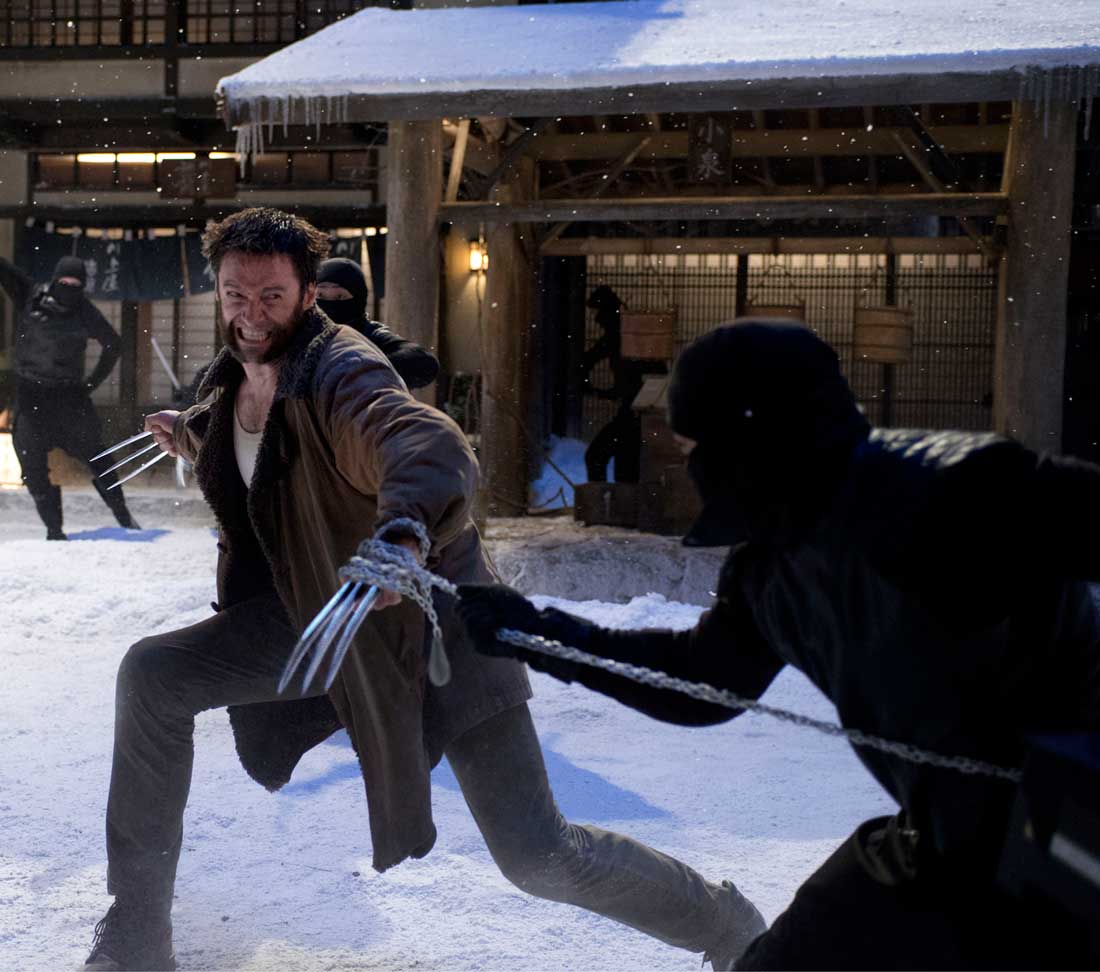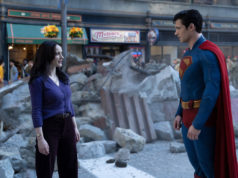Last month, Steven Spielberg and George Lucas made waves in the world of cinema by questioning the sustainability of Hollywood’s current economic model. The directors didn’t really say much that other economists and industry observers hadn’t said before, but their words carried more weight, coming from two filmmakers who did as much as anyone to create the current moviegoing climate. Audiences in Europe and Asia now spend even more money to watch Hollywood movies than North American crowds do.
Ever hear the old cliché that film is a universal language? Well, not really. Action and fantasy fare translate most easily to audiences that speak no English, especially when those movies are sequels, remakes, and adaptations whose stories and characters are already familiar. This has discouraged the big studios from funding comedies and mid-range dramas, contributing to an environment in which it makes more financial sense for studios to produce one $200 million blockbuster than four $50 million films.
The thing is, it all seemed to be working OK anyway, until a few weeks ago. Hollywood has always seen expensive movies fail, but the string of high-profile flops in June and July appeared to fulfill Spielberg’s prediction of an “implosion.” After Earth, Pacific Rim, Man of Steel, White House Down, The Lone Ranger, and R.I.P.D. all underperformed at the box office in the wake of Spielberg and Lucas’ pronouncement. Some of those films may have been victims of overinflated expectations, but even the blockbusters that have succeeded (Iron Man 3, Star Trek Into Darkness, and Monsters University) haven’t generated anything like the enthusiasm from audiences and critics that The Avengers and The Dark Knight Rises inspiredlast year.
I’ve said before that since we’re going to have blockbusters one way or another, it’s good that Hollywood is giving them to strong, creative filmmakers at least some of the time. This string of flops won’t change the studios’ schedules for the near future, which are already set. (Get ready for the new Star Wars movies in 2015!) Hollywood embraces change slowly, and there’s still too much money to be made from a long-running series like the Harry Potter films or a franchise with omnibus potential like the Avengers. For now, this downturn isn’t causing much more than some hand-wringing in plush offices in Southern California.
Then again, that last bit should cause some hand-wringing everywhere. As flawed an institution as the Oscars might be, it’s the only reason why movies like Lincoln and Silver Linings Playbook are still being made in the current climate. It’s bleak to contemplate our multiplexes elbowing aside such movies in favor of umpteenth installments of tired franchises, and while we’re not at that place yet, we can see it from here when Steven Soderbergh has to take his biopic of Liberace to television because the studios don’t think it’ll find an audience in the theaters. (Soderbergh claimed that his movie specifically was deemed “too gay,” an idea that deserves its own discussion elsewhere.)
The frustrating thing is, there’s not much that Joe Moviegoer can do about it, aside from trying to convince his counterparts in Germany and China to buy tickets to American comedies and dramas that are of limited relevance to them. Good luck with that. I am no economic futurist, so I’m not sure whether the blockbusters will continue to push mid-range fare onto television or whether the theaters will start to adopt tiered ticket pricing, as Spielberg suggested. (I think the latter would be catastrophic — one reason movies have maintained their place in pop culture is because tickets are priced democratically.) At the same time, on the lower end of the scale, movies have become easy enough to make that the cinema marketplace is threatening to become oversaturated with product the way it is with music and books. Figuring out how to turn profits while delivering a diverse range of products to customers is the great challenge for the film industry right now, and it’s waiting to be solved by some enterprising soul.
Against this backdrop, The Wolverine opened last week, and neither its reviews nor its box-office returns are evidence that the blockbuster has come back, even though it’s raking in large piles of money both domestically and abroad. This X-Men adventure’s Japanese setting is yet another sign of the global reach of Hollywood’s event movies. Unfortunately, as a piece of entertainment, it runs out of juice about halfway through.
The movie begins with a prelude set outside Nagasaki in 1945, where a young military officer named Yashida (Ken Yamamura) frees the American POWs in his camp just before the fateful atomic air raid. In return for his kind — if largely symbolic — gesture, prisoner James Logan, a.k.a. Wolverine (Hugh Jackman), saves him from the blast. In the present day, Yashida is an elderly, dying, super-rich tech mogul (Haruhiko Yamanouchi) who arranges to have Logan plucked from a homeless existence in the Yukon and flown to Tokyo so that the old man can repay his debt with a tantalizing offer: If he can haveLogan’s immortality and invulnerability, Yashida promises to end Logan’s suffering by giving him a normal life that comes to a natural end. “A man can run out of things to live for,” the tech mogul says.
A raft of promising ideas buoys the early going here, with Logan becoming ensnared in the money- and power-corrupted dynamics of the Yashida clan, pitting the old man’s dastardly son (Hiroyuki Sanada, displaying his brand of smooth menace) against his own daughter Mariko (Tao Okamoto). Then there’s Yukio (Rila Fukushima), Mariko’s best friend.She’s the Yashida retainer who fetches Logan from Canada and turns out to be a future-foretelling mutant herself as well as an expert swordfighter. “Yukio” is actually a boy’s name in Japanese, but the X-Men comic books appear to address this issue, sort of.
In addition to striking up an intriguing friendship with Logan and flashing some sly wit while guiding this clueless foreigner around Japan, Fukushima (a scruffy newcomer with wide-set eyes and red-dyed hair) also wields a nifty sword during an early action sequence when yakuza gangsters try to carry out an assassination during old man Yashida’s funeral. Director James Mangold (Knight and Day, 3:10 to Yuma) executes this scene pretty well and does even better with a creatively staged fight between Logan and an assassin on top of the Bullet Train, with both parties digging their knives or claws into the cars to avoid being blown off the roof.
Despite all this, the movie still stops dead about an hour in and never regains its momentum. Some of this is because of the flavorless romance that develops between Logan and Mariko as he tries to keep her in hiding in the south of Japan — the actors here have little chemistry. Some of this is because the movie becomes hopelessly confused as Wolverine’s invulnerability is taken from him, then restored, then taken again. We have trouble telling from scene to scene just how much danger the superhero is now in from bullets and blades. And what’s up with Logan being so helpless in a foreign country? You’d think that in 170-plus years, he’d at least have learned to say, “Domo arigato.”>
The most disappointing thing is how Wolverine has been declawed, a process that began in the previous X-Men Origins: Wolverine. Haunted by visions of his beloved Jean Grey (Famke Janssen) and given post-traumatic stress on top of that here, Logan has become a mopey, emo, lovesick bore. Where’s the coiled, fuming, cigar-chomping, sarcastic quip-firing killing machine from the first two X-Men movies? I want that guy back. He was fun.
As Wolverine wrestles with the question of whether he wants to die, it’s tempting to read his ultimate fate as a commentary on played-out blockbusters. Whether he regains his sense of purpose or not, Logan is doomed to embark upon more adventures and fight more battles for the benefit of a world that may or may not be grateful for his efforts. Yet as The Wolverine’s closing-credit sequence returns the character to the X-Men fold, the movie still manages to tease us with the idea that the awesomeness might return in the next installment. Oh, these diabolical Hollywood studios. They know how to reel us back in.
[box_info]The Wolverine
Starring Hugh Jackman, Rila Fukushima, and Tao Okamoto. Directed by James Mangold. Written by Mark Bomback and Scott Frank. Rated PG-13.
[/box_info]













There are several problems: 1) The “big box-office” stars are no longer very interesting or their personae are totally over exposed after several repetitive formulamatic movies: Depp, Cruise, Jolie, Willis (Star Trek had a great combination of fresh actors and old favorites in cameo roles), 2) The story lines are totally predictable or limp and maudlin–for the most part 3) Sex and violence or raunchy comedy with toilet bowl humor as “stand alone” “entertainment” is not worth the inflated ticket prices. BTW– Spielberg and Lucas really don’t take any chances on real entertainment anymore and they don’t do anything surprising or origninal (Bio-pics? Lincoln–in the works for 5-6 years-for example), so they shouldn’t complain. Tarantino just seems like a manipulator to me and kind of shallow. pretty discouraging….
So what’s the solution, then? What would a better moviegoing landscape look like to you?
Well I’m not typical but I do like many independent films and foreign films. A better moviegoing landscape would probably consist of better plots and less raunchiness.